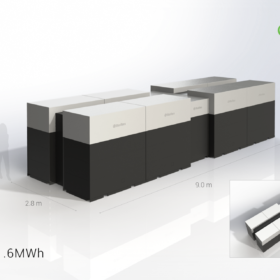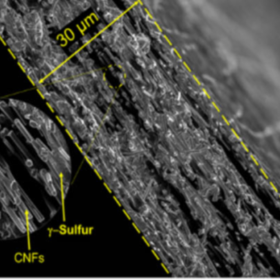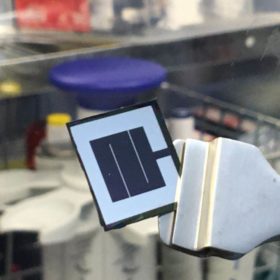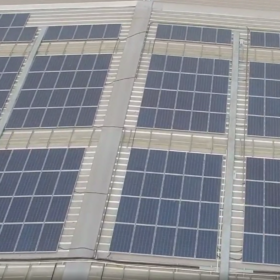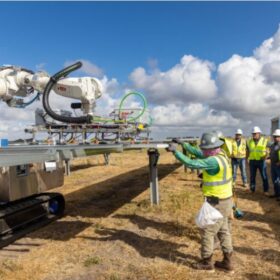Lithium sulfur flow battery with 250 Wh/L energy density
Edinburgh-based energy storage solutions specialist StorTera has developed a long-duration, energy-dense, lithium-sulfur-based single liquid flow battery (SLIQ). The tech is said to last for 30 years with minimal degradation.
A 4,000 cycle lithium-sulfur battery
Scientists in the United States developed a lithium-sulfur battery using a commercially available carbonate electrolyte, that retained more than 80% of its initial capacity after 4000 cycles. The group used a vapor deposition process which unexpectedly produced a form of sulfur that did not react with the electrolyte, overcoming one of the key challenges for this battery chemistry.
India and Israel to work together on perovskite solar cells and lithium sulfur batteries
Low-cost batteries and novel perovskite materials are among the topics selected for joint research and development.
New cathode for sustainable, high-density lithium-sulfur batteries
Shiv Nadar University researchers have synthesized sulfur-rich copolymers from petroleum and agricultural waste as cathode materials for Lithium-Sulfur (Li-S) batteries. IIT-Bombay, which is developing a Li-S battery prototype based on the technology, recorded an average Coulombic efficiency of 99.3% after 500 cycles at 1C, one hour rate of charge and discharge, for the cardanol/sulfur copolymer cathode containing 2.5wt% reduced graphene oxide (rGO).
